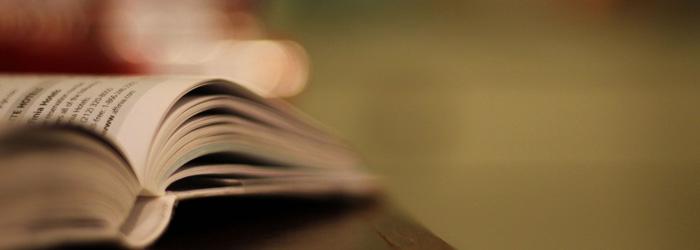Here below,you can find the best books set which explain the city from Constantinople to modern İstanbul. In each of the book,you’ll find yourself in a different historical place in İstanbul.We suggest you to start with the place that attracts you the most in İstanbul to read. The list also includes the best Turkish novel writers including Nobel Prize winner Orhan Pamuk .
 |
Edmondo de Amicis, Constantinople, 1878One of the most enjoyable accounts of the city ever written, full of teeming life and startling contrasts. Yes, times have changed since 1877, but this complex and vibrant portrait of the city remains recognisable.”One of the most splendid bazaars is for shoes … The walls are stacked with slippers; in velvet, in leather, in brocade, in satin, in the most startling colours and the oddest shapes, embroidered with filigree, glittering with sequins, decorated with swansdown and silk tassels, starred with flowers in gold and silver” • The Grand Bazaar |
 |
Yaşhar Kemal, The Birds Have Also Gone, 1978A short, beautiful novel from one of Turkey’s best-loved writers and lovingly translated by his wife, it centres on the idea of gaining grace through kindness to all living things by the old practice of releasing birds captured specifically for the purpose.”Taksim is the most populous part of the town. Wouldn’t there be some, among the crowds that always throng the square, just a few with still a modicum of humanity who, for a trifling sum, will take pride and joy in setting little birds free. Such a sight it is when those birds soar joyously up into the sky …” • Taksim Square |
 |
Orhan Pamuk, Istanbul, 2003The Nobel Prize winner recalls the Istanbul of his youth. Atmospheric black-and-white photos contribute to his depiction of hüzün ― a particularly Turkish form of melancholy.”The beauty I see in Süleymaniye Mosque is in its lines, in the elegant space beneath its dome … Even four hundred years after it was built, I can look at Süleymaniye and see a mosque still standing in its entirety, just as it did, and see it as it was meant to be seen.” • Süleymaniye Mosque |
 |
Ahmet Hamdi Tanipar, A Mind at Peace, 1949Considered by Orhan Pamuk to be the greatest novel ever written about Istanbul, this is a lyrical tribute to both the city and human love.”Çadircilar Street was bewildering as always. On the ground before a shop whose grate usually remained shuttered, waiting for who knows what, were a Russian-made samovar spigot, a doorknob, the remnants of a lady’s mother-of-pearl fan so much the fashion thirty years ago, a few random parts belonging perhaps to a largish clock or gramophone …” • Çadircilar Street (between Beyzait Square and the Grand Bazaar) |
 |
Lady Mary Wortley Montagu, The Turkish Embassy Letters, 1837Though written in the 18nth century, the lively, incredibly modern voice of Lady Mary keeps us entertained throughout.”A palace of prodigious extent, but very irregular, the gardens a large compass of ground full of high cypress trees … the buildings all of white stone, leaded on top, with gilded turrets and spires, which look very magnificent, and indeed I believe there is no Christian king’s palace half so large.” • Topkapi Palace |
 |
Elif Shafak, The Bastard of Istanbul, 2006From one of Turkey’s most popular writers, the bestseller that is by turns magical, informative and heart-breaking as it brings together the turbulent past and the complex present.”The tavern was a stylish but convivial place near the Flower Passage. As soon as they sat, two waiters appeared with a cart of mezes … ‘yalanci sarma, tourshi, patlijan, topik, enginar,’ Armanoush started naming the dishes the waiters were leaving on the table.” • Çiçek Pasaji, in Beyoğlu district |
 |
Philip Mansel, Constantinople: City of the World’s Desire, 1453-1924, 1995A fascinating, wonderfully readable cultural, social and political history of the city in its prime. Rich with anecdotes and information, it is always astonishing and sometimes horrifying.”Yildiz was a museum-complex and industrial park as well as a palace and government compound … The Sultan’s personal photography laboratory, library and carpentry workshop revealed his favourite forms of relaxation: he was a skilled carpenter who made desks for his daughters and walking sticks for wounded soldiers.” • Yildiz Palace and Park |
 |
For those fascinated by the darker side of cities, this collection of 16 stories gives some unexpected insights into the people and places – and even the weather – of Istanbul.”In her youth, Cemile Abla used to love to walk to Bebek and get a cherry-vanilla ice-cream cone, sit on a park bench with a dog-eared Sait Faik book, and just relax. But nowadays, in front of the ice-cream stands stood long lines of bronze, blond-haired girls, pot-bellied boys, and odd, shaggy dogs …” [Excerpt from The Smell of Fish by Hikmet Hükümenoğlu] • Bebek Mustafa Ziyalan and Amy Spangler (editors), Istanbul Noir, 2008 |
 |
Jim Hinks and Gul Turner (editors), The Book of Istanbul: A City in Short Fiction, 2010A recent collection of newly-translated stories from 10 leading Turkish writers, each with a different take on the city. A slim volume, but full of insights and surprises.”My steps took me to Yeldeğirmen … I started to wander through the narrow streets. Washing was drying on lines hung between opposite buildings. Sheets, stockings, underwear, shirts, black primary school aprons were hanging side by side, as if protecting the banished soul of the neighbourhood.” [excerpt from The Well by Türker Armaner, translated by Ruth Whitehouse] • Yeldeğirmen (a district of Kadiköy) Malcolm Burgess is the publisher of Oxygen Books’ City-Lit series, featuring writing on cities including Berlin, Paris, London, Amsterdam, Venice and Dublin |

